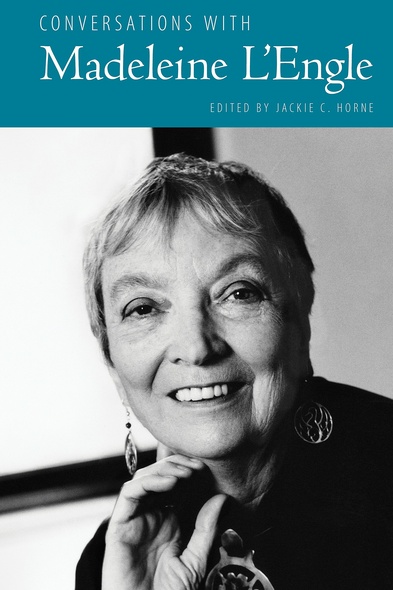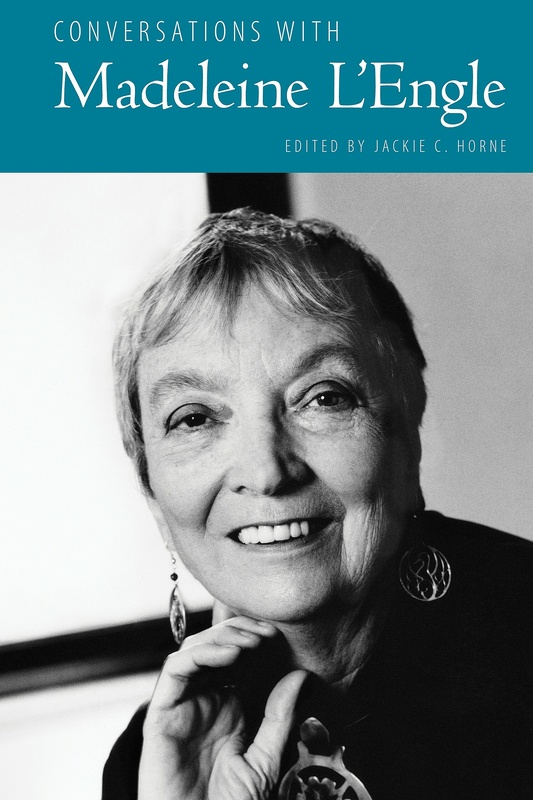
Conversations with Madeleine L'Engle
Conversations with Madeleine L’Engle is the first collection of interviews with the beloved children’s book author best known for her 1962 Newbery Award–winning novel, A Wrinkle in Time. However, Madeleine L’Engle’s accomplishments as a writer spread far beyond children’s literature. Beginning her career as a literary novelist for adults, L’Engle (1918–2007) continued to write fiction for both young and old long after A Wrinkle in Time. In her sixties, she published personal memoirs and devotional texts that explored her relationship with religion. At the time of her death, L’Engle was mourned by fans of her children’s books and the larger Christian community.
L’Engle’s books, as well as her life, were often marked by contradictions. A consummate storyteller, L’Engle carefully crafted and performed a public self-image via her interviews. Weaving through the documentable facts in these interviews are partial lies, misdirections, and wish-fulfillment fantasies. But, when read against her fictions, these “truths” can help us see L’Engle more deeply—what she wanted for herself and for her children, what she believed about good and evil, and what she thought was the right way and the wrong way to be a family—than if she had been able to articulate the truth more directly.
The thirteen interviews collected here reveal an amazing feat of authorial self-fashioning, as L’Engle transformed from novelist to children’s author to Christian writer and attempted to craft a public persona that would speak to each of these different audiences in meaningful, yet not painfully revealing, ways.
Ultimately, Horne’s thoughtfully curated sampling of reprinted interviews paired with her insights in the introduction make this collection a useful resource for L’Engle scholars and fans alike.
A welcome addition to theLiterary Conversations Series.
This volume offers a fascinating portrait of an author and mother with her extraordinary circumstances and working conditions as a representative of the educated middle class in the United States in the second half of the twentieth century. It shows how L’Engle, inspired by the intellectual currents of her time, at the same time thought and wrote in opposition to the movements of the zeitgeist
Both her way of speaking and the interview genre make for a vivid read that revives and pays tribute to this dazzling author, redering something of her energy, her humor, the unconditionality of her passion for literature, and her multilayered religious sense of mission.
Jackie C. Horne is coeditor of Kenneth Grahame’s “The Wind in the Willows”: A Children’s Classic at 100 and Frances Hodgson Burnett’s “The Secret Garden”: A Children’s Classic at 100, both of which have been honored by the Children’s Literature Association for best scholarly edited collection of the year. She is also author of History and the Construction of the Child in Early British Children’s Literature.





